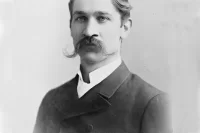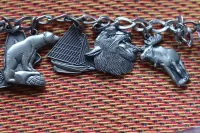
Student laundry in the 1950s by mail, male, or the Hobby Shoppe
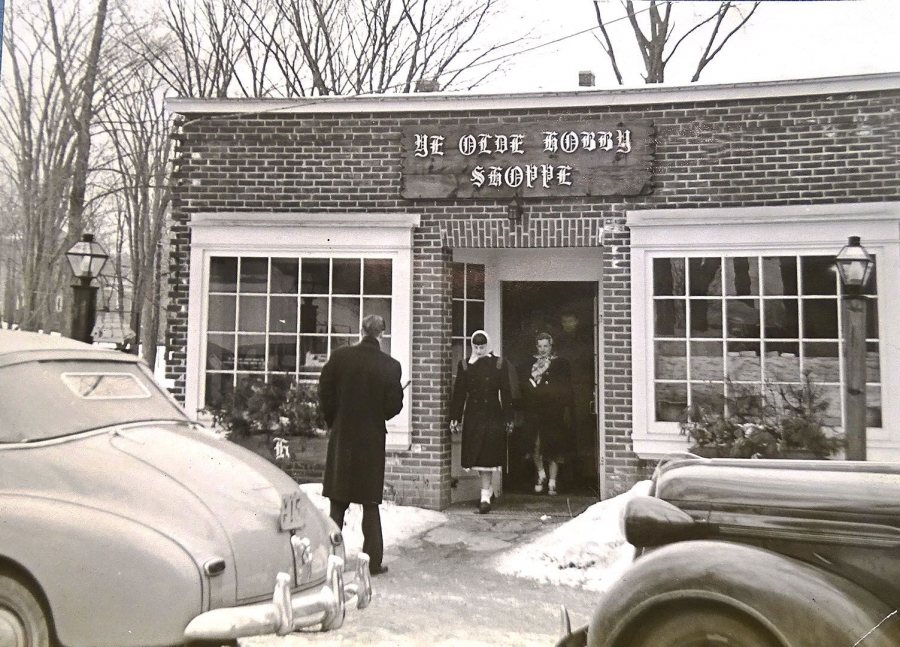
Laundry options for students 60 years ago included the Hobby Shoppe (now offices for Bates Security and Campus Safety), which had basement laundry machines. (Muskie Archives and Special Collections Library)
In the mid-1900s, few college students had cars but they still found ways to get their dirty laundry home — through the mail, for instance, using reusable laundry packs.
One such reusable “Kwik-Pak” laundry case is now part of the Muskie Archives and Special Collection Library holdings, and was used by the late Anne LaRocque ’54 to send her wash home to Berlin, N.H.
Students weren’t being spendthrifts. It was often cheaper and more convenient to mail laundry home than to have it cleaned professionally at a local business.
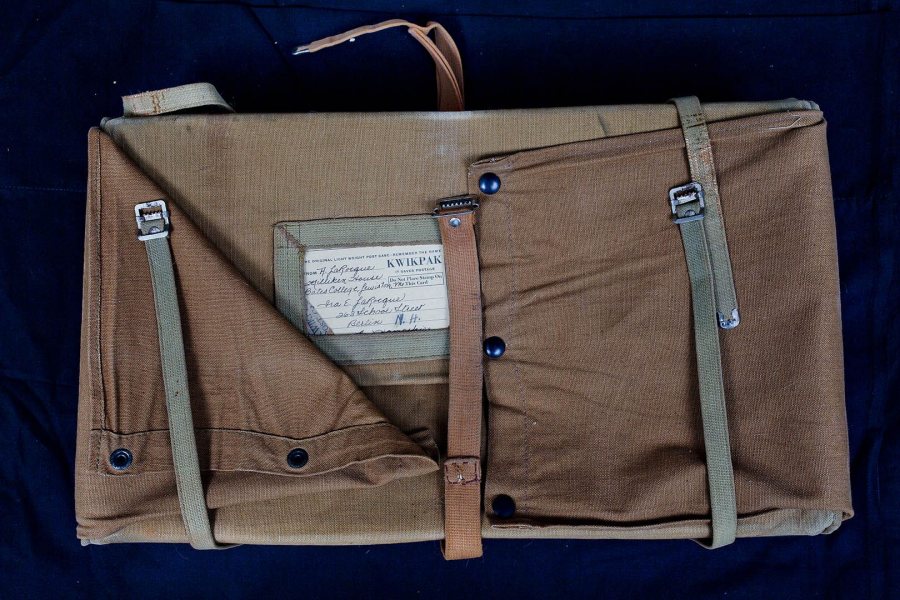
Reusable “Kwik-Pak” laundry cases, like this one in the Muskie Archives and Special Collection Library, were an option for students doing laundry in the 1950s. (Phyllis Graber Jensen/Bates College)
“A lot of students sent their laundry home in those cases,” recalls Ginnie LaFauci Toner ’53.
The packages often came back to campus with more than clean socks.
Marilyn Coffin Brown ’52 recalls, “Oh, those toll house cookies that came back in my roommate’s laundry case!”
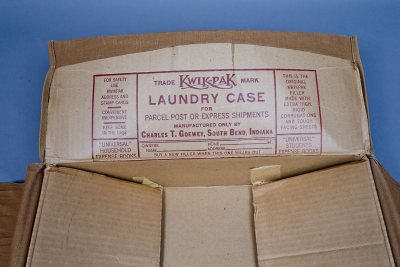
Reusable laundry cases like this one promised “extra high, rigid corrugations.” (Phyllis Graber Jensen/Bates College)
Back in the day, the campus laundry option was limited to wash sinks, ironing boards, and lines strung across the ceiling in the basements of various dorms.
Some students did laundry at the beloved Hobby Shoppe on College Street (now offices for Bates Security and Campus Safety), where there were machines in the basement.
Another alternative was to sign up for a laundry service, which is still an option today, but rarely used.
“It worked like this,” explains Bill Heidel ’59, who handled the Bates men’s laundry as the campus agent, along with Wayne Kane ’59, for the Norris-Hayden Laundry Co. of Auburn:
“Male students would leave their laundry in marked bags on their dorm’s ground floor on a specific day of the week,” recalls Heidel, “and it would be picked up by laundry employees.”
Later that week, he and Kane “would drive to the laundry, load a truck, and deliver laundry and dry cleaning to all campus locations.”
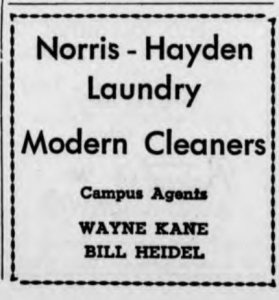
Wayne Kane ’59 and Bill Heidel ’59 ran the student laundry service for Norris-Hayden Laundry of Auburn.
Each week, the pair set up a table outside Memorial Commons in Chase Hall to collect payment from students as they went by. “The collection aspect was most interesting,” Heidel says.
“We got a percentage of the sales, but it wasn’t much. If we were short on collections, it came out of our pockets. And some students thought they could stiff us.”
Heidel was about to leave campus for home one spring when he spied his and Kane’s “last deadbeat” customer loading his father’s car for the trip home.
“I knew that his dad was a popular radio personality,” Heidel explains. “I pulled my car behind his, blocking it. The dad asked why, and I suggested he ask his son.”
After some “hemming and hawing,” the student admitted that “he owed for laundry and that he had promised for weeks that he would pay up.” The father pulled out his wallet and paid the bill.
“And I let him know then that I was a big fan,” Heidel says. “End of story.”
